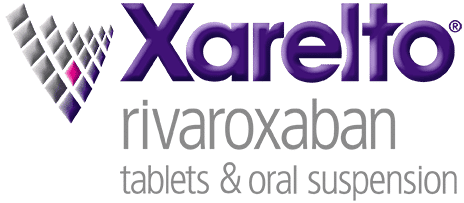预约演示
更新于:2025-05-07
CD3 x GPRC5D
更新于:2025-05-07
关联
24
项与 CD3 x GPRC5D 相关的药物作用机制 CD3刺激剂 [+3] |
非在研适应症- |
最高研发阶段批准上市 |
首次获批国家/地区 美国 |
首次获批日期2023-08-09 |
作用机制 BCMA抑制剂 [+2] |
在研机构 |
原研机构 |
非在研适应症- |
最高研发阶段临床1/2期 |
首次获批国家/地区- |
首次获批日期1800-01-20 |
作用机制 CD3刺激剂 [+1] |
在研机构 |
原研机构 |
非在研适应症- |
最高研发阶段临床1/2期 |
首次获批国家/地区- |
首次获批日期1800-01-20 |
50
项与 CD3 x GPRC5D 相关的临床试验NCT06461988
An Open-Label, Non-Randomized, Phase II Study to Study the Efficacy of Talquetamab (JNJ-64407564) and Lenalidomide as Post Stem Cell Transplant Maintenance in Multiple Myeloma (OPTIMMAL)
Multiple myeloma (MM) is a heterogenous plasma cell malignancy characterized by clonal proliferation of plasma cells and organ damage. Autologous transplantation with high dose chemotherapy is the standard of care in frontline treatment of eligible patients with MM.
开始日期2025-11-01 |
申办/合作机构  Stanford University Stanford University [+1] |
NCT06572605
A Phase 1b/2 Study of Talquetamab Plus Concomitant Priming Radiotherapy in Multiple Myeloma With Extramedullary Disease
This phase I/II trial tests the safety and effectiveness of extramedullary disease (EMD)-directed external beam radiation therapy (EBRT) in combination with talquetamab for the treatment of multiple myeloma patients with extramedullary disease. Extramedullary disease in multiple myeloma involves the infiltration of organs and soft tissues by malignant plasma cells and has proven difficult to treat. Radiation therapy uses high energy x-rays, particles, or radioactive seeds to kill cancer cells and shrink cancers. EBRT is a type of radiation therapy that delivers high-energy beams to the cancer from outside of the body. In this trial, the EBRT will be directed to a site of extramedullary disease. Talquetamab is a monoclonal antibody that may interfere with the ability of cancer cells to grow and spread. A monoclonal antibody is a type of protein that can bind to certain targets in the body, such as molecules that cause the body to make an immune response (antigens). Combining EMD-directed EBRT with talquetamab may be safe, tolerable, and/or effective in treating multiple myeloma patients with extramedullary disease.
开始日期2025-07-01 |
申办/合作机构 |
100 项与 CD3 x GPRC5D 相关的临床结果
登录后查看更多信息
100 项与 CD3 x GPRC5D 相关的转化医学
登录后查看更多信息
0 项与 CD3 x GPRC5D 相关的专利(医药)
登录后查看更多信息
36
项与 CD3 x GPRC5D 相关的文献(医药)2025-05-01·Clinical Lymphoma Myeloma and Leukemia
Comprehensive Review of Bispecific Antibody Constructs In Multiple Myeloma: Affinities, Dosing Strategies and Future Perspectives
Review
作者: Einsele, Hermann ; Rasche, Leo ; Waldschmidt, Johannes M ; Kortüm, K Martin
2025-04-01·The Lancet Haematology
Safety and activity of talquetamab in patients with relapsed or refractory multiple myeloma (MonumenTAL-1): a multicentre, open-label, phase 1–2 study
Article
作者: Touzeau, Cyrille ; Mateos, María-Victoria ; Rasche, Leo ; Tolbert, Jaszianne ; Goldberg, Jenna D ; Moreau, Philippe ; Qin, Xiang ; Hilder, Brandi ; Campagna, Michela ; van de Donk, Niels W C J ; Schinke, Carolina ; Karlin, Lionel ; Caers, Jo ; Oriol, Albert ; Ye, Jing Christine ; Ludlage, Hein ; San-Miguel, Jesus ; Krishnan, Amrita ; Minnema, Monique C ; Berdeja, Jesus G ; Verona, Raluca ; Martinez-Chamorro, Carmen ; Renaud, Thomas ; Vishwamitra, Deeksha ; Ma, Xuewen ; Chari, Ajai ; Morillo, Daniel ; Kane, Colleen ; Heuck, Christoph ; Masterson, Tara ; Skerget, Sheri ; Rodríguez-Otero, Paula ; Lipe, Brea ; Costa, Luciano J
2025-04-01·Nature Medicine
Multiomic profiling of T cell lymphoma after therapy with anti-BCMA CAR T cells and GPRC5D-directed bispecific antibody
Article
作者: Kreuz, Markus ; Fandrei, David ; Köhl, Ulrike ; Holtick, Udo ; Scheid, Christof ; Merz, Maximilian ; Hallek, Michael ; Pham, Nhu-Nguyen ; Platzbecker, Uwe ; Kuhn, Christina Katharina ; Schweinsberg, Viola ; Braun, Till ; Reiche, Kristin ; Heger, Eva ; Richardson, Tim ; Meinel, Jörn ; Kuschel, Florian ; Pflug, Natali ; Klepzig, Hanna ; Rade, Michael ; Herling, Marco ; Löffler, Dennis ; Große, Florian
503
项与 CD3 x GPRC5D 相关的新闻(医药)2025-04-22
·医药笔记
▎Armstrong近期,DLL4/VEGF双抗ES104(Tovecimig)在胆道癌的关键性临床试验中取得成功,达到主要终点,有望成为胆道癌二线治疗的新标准,为这一高度未满足的临床领域带来新的希望。胆道癌是一种高度恶性的消化系统肿瘤,具有进展快、诊断晚、预后差等特点。全球胆道癌发病率约为3/10万,根据最新的GLOBOCAN数据,全球胆道系统相关癌症的新发病例总数大约为 27–29 万例/年,且呈逐年上升趋势。在中国,胆道癌发病率明显高于欧美地区,每年新增胆道癌患者约为55,700人【1】。大多数胆道癌患者确诊时已处于晚期,当前标准治疗手段对其控制效果有限。一线治疗以免疫联合化疗为主,客观缓解率不足30%,虽然免疫检查点抑制剂能够改善生存,但整体获益仍有限;70-80%的患者在一线治疗失败后会进入二线治疗阶段。二线治疗中,仅有FOLFOX化疗方案作为标准,其客观缓解率仅5%,中位生存期约为半年;真正具有明确靶点突变可使用靶向治疗的患者仅占比不超过20%。因此,二线晚期胆道癌二线治疗尤其缺乏有效手段,亟需机制新颖、疗效确切的新型药物。在ES104的胆道癌关键性临床试验中,Compass采取随机、对照设计,入组168例晚期胆道癌患者,主要终点为ORR,关键次要终点包括PFS、OS、DOR等。ES104联合紫杉醇治疗组相比于紫杉醇对照组,ORR分别为17.1%、5.3%,p值为0.031,ORR提高到3倍以上,展示出优异疗效。两组BOR为PD的比例差异显著,紫杉醇组42.1%的患者其最佳疗效为疾病进展,而ES104联合治疗组仅16.2%的患者为疾病进展,提示PFS曲线在治疗早期即已出现分离,预示着PFS将获得显著获益。此外,ES104更早的2期单臂研究中,BTC二线或三线的患者经ES104联合紫杉醇治疗后中位PFS和中位OS分别达到9.4个月和12.5个月,远超化疗PFS 3-4个月,OS半年的历史数据。从瀑布图上可以看到,联合治疗组有4名患者达到100%缩瘤,靶病灶完全消退,获益明显。在疗效显著提高的情况下,ES104安全性表现也与已获批的同类药物类似。ES104有望成为全球胆道癌二线治疗的标准疗法。Stifel在其近期的研究报告中指出,Tovecimig当前在客观缓解率方面已取得统计学显著性,这一结果使得后续对无进展生存期数据的正式统计分析成为可能。在当前缺乏有效治疗选择的疾病背景下,结合Tovecimig在疾病进展数据中表现出的差异性优势等方面的评估,Stifel将Tovecimig在二线胆道癌适应症中的成功概率(POS)由原先的75%上调至85%。适应症拓展方面,ES104在结直肠癌单药临床试验中也显示出积极的临床获益。ES104在胆道癌、结直肠癌的临床进展,其意义远超本身,意味着DLL4/VEGF有望成为新一代的血管抑制基石药物,对于胃癌、胶质母细胞瘤、肝癌、卵巢癌、肾癌等多个瘤种都有拓展可能。在血管抑制方面,最经典的治疗方案包括贝伐珠单抗、小分子VEGF受体抑制剂等,虽已广泛应用于多种肿瘤治疗中,但其疗效常因耐药性而受限。更重要的是,血管抑制这一机制也开始取得迭代突破。ES104采用对称的2+2设计,靶向DLL4和VEGF两个关键血管生成通路,其中,DLL4-Notch1 通路被认为是VEGF单抗产生耐药的关键机制。通过同步阻断这两大路径,ES104有望克服传统血管抑制疗法的局限性,成为血管生成抑制领域的新一代“基石”药物。DLL4/VEGF双抗的成功,也提示我们新的抗体药物形式近年来快速发展,PD-1/VEGF为代表的肿瘤免疫双抗,EGFR/cMET为代表的TAA双抗,DLL3/CD3为代表的实体瘤TCE,DXd-ADC为代表的三代ADC取得一系列临床突破。以双抗为例,多款TCE、PD-1/VEGF双抗、自免双抗密集完成高额出海授权交易,新的赛道如MCE(Myeloid Cell Engager),也出现科望医药PD-L1/SIRPα双抗更创新的双抗新药。双抗本质上是不同靶点作用机制的有机组合,肿瘤免疫、TAA靶向、血管抑制等为肿瘤治疗中最重要的几类机制。PD-1/VEGF双抗的成功正是源于肿瘤免疫与血管抑制机制的有效结合,也引起了整个行业的广泛关注和布局。在双抗领域的布局,科望医药走在了更前沿,其拥有DLL4/VEGF双抗ES104的大中华区权益,正积极推进胆道癌在大中华区的商业化进程,同时布局多个瘤种的临床探索。此外,其自主研发的MCE包括多款基于BiME平台的双抗、两款TL1A/X双抗等,将持续加热双抗赛道。总结默沙东和BMS的PD-1+小分子VEGF抑制剂 ,康方生物PD-1/VEGF双抗一再验证了免疫治疗+血管抑制的应用前景,免疫治疗、血管抑制、化疗、放疗成为肿瘤治疗的最重要基石。免疫治疗的迭代主要是新靶点组合,化疗的迭代主要是ADC,放疗的迭代主要是靶向核药。相比之下,血管抑制的迭代仍有很大空间,DLL4/VEGF双抗有望成为血管抑制的新一代基石药物,后续可以与化疗、ADC、免疫治疗多种治疗机制开展联合治疗的探索,不断扩展其临床应用空间。参考文献[1] Zheng R, Zhang S, Zeng H, et al. Cancer incidence and mortality in China, 2016. J Natl Cancer Cent 2022;2:1-9.Armstrong技术全梳理系列GPRC5D靶点全梳理;CD40靶点全梳理;CD47靶点全梳理;补体靶向药物技术全梳理;补体药物:眼科治疗的重要方向;Claudin 6靶点全梳理;Claudin 18.2靶点全梳理;靶点冷暖,行业自知;中国大分子新药研发格局;被炮轰的“me too”;佐剂百年史;胰岛素百年传奇;CUSBEA:风雨四十载;中国新药研发的焦虑;中国生物医药企业的研发竞争;中国双抗竞争格局;中国ADC竞争格局;中国双抗技术全梳理;中国ADC技术全梳理;Ambrx技术全梳理;Vir Biotech技术全梳理;Immune-Onc技术全梳理;亘喜生物技术全梳理;康哲药业技术全梳理;科济药业技术全梳理;恺佧生物技术全梳理;同宜医药技术全梳理;百奥赛图技术全梳理;腾盛博药技术全梳理;创胜集团技术全梳理;永泰生物技术全梳理;中国抗体技术全梳理;德琪医药技术全梳理;德琪医药技术全梳理2.0;和铂医药技术全梳理;荣昌生物技术全梳理;再鼎医药技术全梳理;药明生物技术全梳理;恒瑞医药技术全梳理;豪森药业技术全梳理;正大天晴技术全梳理;吉凯基因技术全梳理;基石药业技术全梳理;百济神州技术全梳理;百济神州技术全梳理第2版;信达生物技术全梳理;信达生物技术全梳理第2版;中山康方技术全梳理;复宏汉霖技术全梳理;先声药业技术全梳理;君实生物技术全梳理;嘉和生物技术全梳理;志道生物技术全梳理;道尔生物技术全梳理;尚健生物技术全梳理;康宁杰瑞技术全梳理;科望医药技术全梳理;科望医药技术全梳理2.0;岸迈生物技术全梳理;礼进生物技术全梳理;康桥资本技术全梳理;余国良的抗体药布局;荃信生物技术全梳理;安源医药技术全梳理;三生国健技术全梳理;仁会生物技术全梳理;乐普生物技术全梳理;同润生物技术全梳理;宜明昂科技术全梳理;派格生物技术全梳理;迈威生物技术全梳理;Momenta技术全梳理;NGM技术全梳理;普米斯生物技术全梳理;普米斯生物技术全梳理2.0;三叶草生物技术全梳理;贝达药业抗体药全梳理;泽璟制药抗体药全梳理;恒瑞医药抗体药全梳理;齐鲁制药抗体药全梳理;石药集团抗体药全梳理;豪森药业抗体药全梳理;华海药业抗体药全梳理;科伦药业抗体药全梳理;百奥泰技术全梳理;凡恩世技术全梳理。
临床2期临床结果
2025-04-20
·研发客
// • 2024年创新药业务收入49.28 亿元,占先声总收入的74.3%;• 绝大多数管线为先声团队自主研发,其中一部分出自先声在海外的创新中心;• 除了与跨国药企合作之外,先声还将探索与海外基金合作建立NewCo等形式;• 将投入20亿元聚焦神经与肿瘤领域十大科学难题,支持颠覆性创新研究。距离中国第一款重组人血管内皮抑制剂恩度上市,已经过去20年。2007年,先声凭借这款创新产品登陆纽交所。6年后,在重重因素之下私有化退出美国资本市场。而就在同一时期,先声药业董事长任晋生做出了全面转型创新的决定。2020年回到港股之后的先声,逐渐找到了自己的节奏。从过去四年的财报表现来看,这艘航母级的制药企业已经驶入了新的航道。据2024年财报显示,公司全年收入66.35 亿元,同比增长0.4%;经调整净利润10.18亿元,同比增长 41.65%。其中,创新药业务收入 49.28 亿元,占总收入的 74.3%,创公司上市以来新高。最近,先声在创新道路上又有新动作——启动“先声全重求索计划”,五年投入20亿元在神经与肿瘤领域的颠覆性创新研究。8款产品60条管线有多少自研?2024年,先声的研发支出15.23亿元,同比有所缩减。不过,整体维持在收入的23%左右。这个数字在港股创新药上市公司中,并不算低。先声药业执行董事、神经与肿瘤药物研发全国重点实验室主任唐任宏博士在接受采访时表示,研发费用在2024年有所缩窄,主要源于2023年几个3期临床项目结束。而随着新的3期临床开展,也会有相应的变化。那么,过去几年持续的研发投入,先声收获了什么?一直以来,传统药企被认为天然缺乏创新基因,从而在转型创新道路上后继乏力。曾经如火如荼的license-in模式也在最近两年逐渐受到行业和投资人的质疑。先声的选择是,一边通过外部引入模式加速创新,一边苦练自研内功。关于传统药企转型创新,还可阅读净利下滑16%,石药的创新何时补位目前,先声已有8款创新产品上市,涵盖神经科学、抗肿瘤、自身免疫及抗感染领域。此外,有部分产品近期不乏新动态:第一款创新药恩度畅销抗肿瘤市场近20年,即将完成新适应症拓展。2024年12月获批上市的治疗急性出血性脑卒中产品先必新(依达拉奉右莰醇)舌下片,是先必新的新剂型。先必新注射剂已于2020年获批上市并纳入医保,2024年在卒中 注射液市场份额约占28%,年覆盖患者新增131万人。先必新舌下片将与注射液组成序贯疗法。化疗骨髓保护创新药科赛拉(注射用盐酸曲拉西利)则是先声从G1 Therapeutics引入。这款曾获得FDA突破性疗法的First-in-Class药物,在美国上市一年多之后即在中国上市,并实现了国内本土生产。失眠症药物科唯可(盐酸达利雷生)的NDA申请已获NMPA受理。先声在2022年以5000万美元的首付款及里程碑款项从Idorsia手中获得该产品在大中华地区开发和商业化的独家权益。这是唯一一款获得EMA批准的改善日间功能的DORA类(双重食欲素受体拮抗剂,Dual Orexin Receptor Antagonist)失眠药物。目前已于美国、英国、瑞士、加拿大等9个国家获批上市。“一方面,我们自研的团队必须持续不断地在研发管线中推出更多高质量的创新产品。”唐任宏坦言,“另一方面,我们也意识到自己的创新能力仍有不足,需要与外部的合作方共同把优秀的产品引进到管线中来,并通过先声在临床、生产、注册、商业化等方面的优势,实现创新价值最大化。” “在未来几年,我们依然会秉持双轮驱动的策略,在国内继续充实自身研发的管线,同时也在海外进行更强有力的布局。”唐任宏说。唐任宏透露,目前先声有60多款在研管线,除了一些处于临床后期的产品之外,绝大多数管线为团队自主研发。其中一些资产出自先声在海外的创新中心。先声的财报数据显示,公司已有多款产品进入PoC 数据关键期。2024年以来新增PCC 分子7项,新增IND 8项。创新触角伸向海外2025年1月,先声药业子公司先声再明与全球头部制药企业艾伯维达成协议,授予后者其自主研发的三特异性抗体(靶向GPRC5D/BCMA/CD3)SIM0500的许可选择权。该管线针对多发性骨髓瘤,目前处于中美同步Ⅰ期临床阶段,潜在交易总额超11亿美元。2022年,先声与西班牙制药公司Almirall合作,共同开发先声自主研发的自免创新药IL-2突变Fc融合蛋白。先声获得1500万美元的初始付款及4.92亿美元的商业开发基金。目前已启动美国临床研究。从这两个交易来看,先声已经把创新的触角伸向海外。先声药业首席投资官周高波表示,目前,企业要让创新药收获真正的价值,必须着眼于包括中国在内的全球市场。而真正出海之后,需要学习全球市场的创新标准和创新质量。“2019年,先声在波士顿建立了创新中心。此外,公司在伦敦建立了办公室。这些举措都让我们更接近全球创新高地,学习他们的创新和转化如何开展,在这个过程中逐渐积累我们的海外创新研发能力。同时,我们与麻总百瀚、哈佛大学医学院、斯坦福大学合作,获得在早期研发方面帮助和支持。”周高波说。周高波透露,对于“走出去”,除了与跨国药企合作之外,先声也将探索与海外基金合作建立NewCo等形式。5年20亿元支持颠覆性创新面向未来,进入创新2.0时代的先声药业正在着手新的布局。上个月,神经与肿瘤药物研发全国重点实验室与先声联合发布了“先声全重求索计划”——未来五年投入金额20亿元,聚焦神经与肿瘤领域十大科学难题,支持“从0到1”的颠覆性创新研究。具体来看,求索计划的10个支持研究方向分别为:从根本上逆转脑卒中高死亡率、高致残率的治疗手段;精准治疗神经退行性疾病的潜在靶点发现、验证和药物研发;有望大幅提升当前肿瘤治疗效果的靶点(或组合)发现、验证和药物研发验证;RNA干扰/mRNA技术在神经退行性疾病、肿瘤和感染等领域的治疗性应用;新一代细胞治疗的临床应用;新一代基因编辑等相关技术的临床应用;新一代递送技术的临床应用;抗衰老相关机制的临床应用;基于临床数据,AI技术手段应用于靶点发现、验证;AI技术手段应用于药物研发临床有效性和安全性预测。据研发客了解,该计划由12位中国科学院、中国工程院院士组成科学指导委员会,为项目进行方向性规划,鼓励非共识性创新、多学科交叉融合、综合运用新兴技术。唐任宏表示,一直以来,先声全重作为先声创新药研发的“主发动机”,大大加快了先声创新转型的步伐。站在新的发展阶段,先声全重瞄准颠覆性创新发布“求索计划”,期待更多拥有强烈使命感、充满好奇心和求知欲、充满对科学求索的热爱的年轻“求索者”加入,与先声在协同创新帮助患者的路上携手前行。编辑 | 姚嘉yao.jia@PharmaDJ.com 总第2406期访问研发客网站,深度报道和每日新闻抢鲜看www.PharmaDJ.com
财报突破性疗法引进/卖出
2025-04-18
2025年,创新药行业进入颠覆式创新的发展阶段。在1.0创新阶段,先声通过“BD+自研”方式成功实现仿创转型。到2.0创新时,先声依旧保持危机意识,率先投入到从0到1的颠覆式创新中。撰文| Jessie中国创新药行业正经历价值坐标的重塑:从仿创时代的PE估值,转向创新管线的全球竞争力定价。这一进程中,两大预期主导创新药市场——企业产品创新的估值体系切换,创新药海外价值的重估。作为转型样本的先声药业,用74%的创新药收入占比、5年超80亿的研发投入、8款上市创新药的实绩,验证了创新转型的可行性。在此背景下,先声药业宣布进入创新2.0时代,在“神经与肿瘤药物研发全国重点实验室协同创新会议”上协同政府、科研院校重磅抛出“先声全重求索计划”:五年投入20亿元布局AI靶点发现、基因编辑等十大前沿领域,剑指颠覆式创新。另值得关注的双重预期在于:其一,2025年恩泽舒(卵巢癌)、科唯可(失眠症)等高价值创新产品获批上市,有望推动其创新药收持续提升;其二,随着SIM0500三抗等管线的海外授权持续兑现,先声有望打开两大估值空间。先声实践揭示:唯有穿越“硬创新”的生死线,才能在全球医药创新版图上刻下中国坐标。01创新1.0:撕掉仿制标签,成功转型创新先有创新产品,再有创新能力,这是先声药业作为一家成立于1995年的老牌Pharma给同样境遇下转型玩家的第一个重要启示。成立30年的发展历程中,该公司早在2006年就上市了首个抗肿瘤1类新药恩度,并在随后的十余年间陆续推出艾得辛、先必新等自研创新药。然而,正如诸多国内传统药企一般,仿制药是公司成长和扩张的必经阶段。很长一段时间内,先声药业在走仿创结合的路线。2020年,先声药业于港交所上市时,由于创新药收入占比只有45%,被港交所拒绝在招股书中描述“我们是一家创新药企”,要求必须修改为“我们是一家仿制药为主的制药企业”。在最近的五年内,先声药业实现快速蜕变,新药创收占比持续提升,在2021-2023年分别为62%、65%、72%。根据2024年财报,其创新药业务收入达49.28亿元,占总营收的74.3%,达到行业领先水平,占比甚至超过国内头部药企转型先锋。创新药的成功带来可观的利润表现:毛利率攀升至80.2%,带动经调整净利润同比增长41.6%至10.18亿元。这表明,先声药业已经是一家由创新产品驱动的创新药公司,其未来管线估值对比现在26倍的市盈率,或有较大上升空间。如今,先声拥有8款已上市创新药,并且围绕神经科学、抗肿瘤、自免及抗感染领域,布局了超60项的创新研发管线,未来3年还将获批5-6个创新药,创新药收入占比预计将保持在80%以上。不可忽视的是,这一转变的背后,是5年累计超80亿元的研发投入,以及“神经与肿瘤药物全国重点实验室”(以下简称“全国重点实验室”)十年技术积淀的爆发。据先声药业执行董事、全国重点实验室主任唐任宏博士总结,先声近年来基于全国重点实验室开展的创新探索取得10大进展。在神经科学领域,脑卒中1类新药先必新,2023年贡献收入超13亿元(米内网数据),2024年其舌下片剂型获得FDA突破性疗法认定,并就海外Ⅲ期临床方案与FDA达成一致,成为全球首个获此认证的神经科学领域药物。在抗肿瘤领域,全球首个且唯一具有全面骨髓保护作用的“化疗守护者”科赛拉在中国正式商业化上市,并实现本土化生产和进入医保,大幅提升市场竞争力。此外,还有国产首款3CL抗新冠创新药先诺欣获得常规批准,以及包括自主研发的SIM0500三抗项目实现超11亿美元对外授权,自主研发的自免创新药IL-2突变Fc融合蛋白实现近5亿美元对外授权;卵巢癌创新药恩泽舒、抗失眠创新药科唯可、自免药物乐德奇拜单抗等多个创新药即将迎来上市催化。这些成果验证了管理层的前瞻判断:当创新药收入占比跨越70%阈值,企业估值模型将从传统药企向Biopharma切换。战略取舍同样关键。西方军事理论家克劳塞维茨说,“集中兵力是最简单的战略,也是最高战略。”过去六年,为加速创新转型,先声药业持续优化管线组合,逐步缩减仿制药业务规模。目前,4个NDA品种均为创新药,卵巢癌药物恩泽舒、失眠治疗药物科唯可已进入上市审批最后阶段,有望于2025年贡献收入。02创新2.0:向颠覆式创新进发当Deepseek炸翻全球,各行各业都真正见识到了颠覆式创新的能量。2025年,创新药行业进入颠覆式创新的发展阶段。在这一阶段,“赢者通吃”规则将大行其道,企业比拼的是真正的创新,没有差异化的东西不会受到市场关注。唐任宏表示,一个抗肿瘤创新药一旦公布全球临床Ⅲ期的惊艳数据,意味着同样适应证的同类产品价值将即刻跳水。未来将没有一般有效的中小产品生存空间。先声的忧患意识和市场嗅觉时刻保持觉醒。2025年3月,全国重点实验室学术委员会主任委员、中国工程院王广基院士代表实验室发布“先声全重求索计划”:未来五年投入20亿元,聚焦神经与肿瘤领域十大科学难题,支持“从0到1”的颠覆性创新研究,每个都直指全球医药界的未解难题。该计划由12位中国科学院及工程院院士组成科学指导委员会,并获得了南京江北新区20亿元配套资金跟投,先声在会上完成了深度战略合作签约。业界认为,这一举措是中国药企向源头创新迈出实质性步伐的代表性案例。先声药业董事长任晋生在会上表示,全国重点实验室是先声创新药研发的主发动机。“未来全国重点实验室将通过‘先声求索计划’等协同创新的大胆举措,进一步开拓生物医药创新升级的路径,在神经与肿瘤领域为患者开发更有效、更具差异化的创新药。”03能力质变时刻回顾这家公司的发展历程,创新1.0阶段,不管是通过自研还是BD引进来扩充创新药管线,其呈现可圈可点。创新2.0阶段,则更注重积累创新能力,从管理层到整个组织,从战略前瞻到策略实施,都在为创新而蜕变。从1.0到2.0,先声还能赢吗?在创新2.0时期,“更有效、更具差异化”是创新药成为赢者的基本内核,不能满足临床需求的产品可能价值很小甚至为0。此外还要匹配外层的组合优势:上市顺位、价格(包括成本因素),是否进入医保,给药途径等。这些苛刻的要求,给中国自主创新药企的研发、BD的升级,以及组织能力的系统提升都提出了不小的挑战。从行业视角来看,先声现有研发管线距离其创新2.0的标准仍有较大提升空间,高潜力大品种不足。当越来越多明星创新药诞生在本土Biotech,他们企业规模、研发投入比不上先声,但是创造的单品价值却更高。这些新型企业在人才密度、研发效率等方面都值得先声这样刚完成转型的老牌药企研究和借鉴。进入创新2.0,先声或许首先需要明确三个问题:研发投入最大的赌注应该下在哪里?在all in创新时,如何确保销售收入的稳定、研发投入的可持续性?先声如何将过去五六年间建立的创新药的经验、能力和优势有效链接到新阶段?先声药业的答案是,必须更坚定研发和BD的大品种策略。在公开场合发言中,先声药业表示,以市场需求为导向的主要标志就是重量级大品种,而“赢者通吃”规则未来大行其道的结果也是大品种。“未来的标准,或许国内3亿美金(人民币20亿元)是一个最低标准,应该要奔着50亿元的项目。大品种策略对先声创新2.0、对未来的成功特别关键。所以我们追求的,不会是在中国获批上市的产品数量,而是大品种。”以先声全重求索计划发布为里程碑,我们可以明显看到,先声药业在对创新的追求上,举措越来越大胆,远不满足于渐进式改良,支持和鼓励包括“非共识创新”在内的一系列从0到1的早期原始创新,将目光瞄准“前所未有”的治疗手段。先声近年来一直在强调的协同创新,则是以开放的心态拓展创新来源,构筑优势互补的全产业链。公司近年来的协同创新正在越来越多元:一是增加了对国内创新项目的引进,或者直接负责商业化国内Biotech公司即将上市产品;二是更重视产学研的转化。据先声药业官网,公司已经和中国药科大学、清华大学、美国麻总百瀚(顶级医疗机构)等达成FIC/BIC新药的合作,持续扩充研发管线。归结来看,过去几年中,先声先后在创新药临床、BD和商业化上展现的能力都给到行业更多的信心。04估值重估之年值得一提的是,从资本市场来看,眼下的2025年将是中国创新药的全面复苏之年。2025年一季度,先声药业动态市盈率从2024年的22倍升至28倍,逐步向恒生医疗保健指数成份股平均水平靠拢。交银国际在研报中强调,公司创新药管线兑现节奏与海外授权潜力尚未充分定价。总的来看,先声药业有几大预期可支撑:一是,今年创新产品上市的商业化预期,随着恩泽舒、科唯可等产品获批上市,推动先声创新药收入占比持续突破,以及利润提升的可能性;二是,底层技术储备的价值开始释放。双抗/多抗平台、ADC等技术平台孵化的产品正在持续涌现,如SIM0278(IL-2融合蛋白)、SIM0500(GPRC5D/BCMA/CD3三抗)、SIM0505(CDH6-ADC)等。三是,这些在研产品的BD预期。年初,与艾伯维的超11亿美元大单是开始,后续自研新药市场格局良好,满足BD潜力预期。在生物医药产业的价值重构浪潮中,先声药业的表现验证了一个核心逻辑:当创新药收入占比持续突破提升利润空间、海外授权形成规模、技术平台产生复用价值时,资本市场将重新校准定价模型。这种价值发现过程,正在为中国创新药企打开万亿市值通道。一审| 黄佳二审| 李芳晨三审| 李静芝
财报医药出海一致性评价临床研究
分析
对领域进行一次全面的分析。
登录
或

Eureka LS:
全新生物医药AI Agent 覆盖科研全链路,让突破性发现快人一步
立即开始免费试用!
智慧芽新药情报库是智慧芽专为生命科学人士构建的基于AI的创新药情报平台,助您全方位提升您的研发与决策效率。
立即开始数据试用!
智慧芽新药库数据也通过智慧芽数据服务平台,以API或者数据包形式对外开放,助您更加充分利用智慧芽新药情报信息。
生物序列数据库
生物药研发创新
免费使用
化学结构数据库
小分子化药研发创新
免费使用



